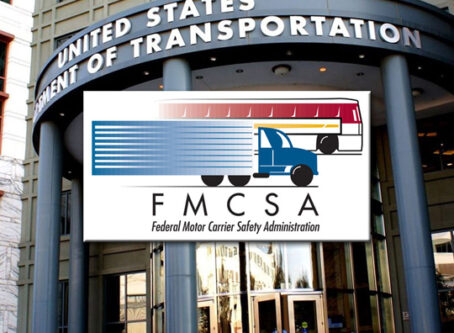Truck parking is focus of legislation in multiple statehouses
State lawmakers in multiple states have introduced legislation to address truck parking shortages.
Available truck parking continues to be an issue nationally. New data, however, suggests significant improvement when it comes to truck parking availability nationwide.
In 2019, a Jason’s Law survey showed there were about 313,000 truck parking spaces across the nation. The figures include 40,000 spaces at public rest areas and 273,000 at private truck stops.
Florida
Florida Gov. Ron DeSantis included truck parking funding in his transportation budget proposal for Fiscal Year 2024-2025.
Dubbed Focus on Florida’s Future, the governor recommends $25 million to provide commercial truck parking relief along the state highway system.
The state is on a short list of states with high numbers of unauthorized parking. Affected states are described as those with major freight generating areas, major ports and intermodal facilities.
Recent data from the Florida Department of Transportation shows that up to 20,000 trucks each day travel Interstate 4 between the Osceola/Polk county line and Interstate 95. The stretch has just 36 truck parking spots.
FDOT studies say another 450 spaces are needed now, with 750 additional spots necessary over the next several years.
New Jersey
One New Jersey Assembly bill would implement a rule for truck parking to be included in any plans for certain warehouse developments.
Sponsored by Assemblyman Sterley Stanley, D-Middlesex, the bill would require an application for development proposing a large warehouse to provide an “adequate number of onsite parking spaces” to accommodate tractor trailers servicing the warehouse as a condition of preliminary site plan approval.
A3370 states that trucks servicing the warehouse do not contribute to an overflow of tractor-trailer parking onto other local properties or rights-of-way between the hours of 10 p.m. and 6 a.m.
Additionally, a municipality may enact a zoning ordinance that allows the number of onsite parking spaces required for overnight truck parking to be reduced, and that an application for development for a large warehouse that contributes to an overflow of truck parking onto other local properties or rights-of-way may be approved, as allowed by the zoning ordinance.
The bill is in the Assembly State and Local Government Committee.
New York
Multiple New York bills also cover truck parking. Both of these allow for increased fines for parking in certain areas.
Sponsored by Sen. Leroy Comrie, D-Queens, S518 would authorize a $1,000 fine for parked or unattended semi-trailers or trailers on New York City streets.
A bill memo states that owners or operators of illegally parked tractor-trailers or semi-trailers now are not fined. Owners can retrieve their vehicles by paying a $160 towing fee.
The fee is described as “a small price to pay compared to what it can cost to legally park a tractor-trailer in the city.”
The proposed fine is touted to help encourage the legal parking of affected vehicles and to help maintain the “quality of life” in city neighborhoods.
S518 awaits a final vote on the Senate floor. If approved there, it would move to the Assembly.
A related bill from Comrie also awaiting a final Senate floor vote would impose a $400 fine for tractor trailers that park overnight on New York City residential streets. Repeat offenses within six months would result in $800 fines.
The focus of S519 is Southeast Queens between John F. Kennedy and LaGuardia airports.
A memo attached to the bill recognizes that “while commercial trucks have a place to pick up and drop off supplies they are delivering, there is no place for them to park.” As a result, between overnight shifts, trucks park in residential areas, taking up spaces in front of homes.
In December, Land Line reported on the truck parking shortage in New York.
Pennsylvania
A Pennsylvania House committee acted last fall to endorse taking steps toward addressing a shortage of truck parking in the state.
The Pennsylvania Department of Transportation reported there are about 11,600 truck parking spaces available throughout the state at private truck stops, PennDOT rest areas and welcome centers, and Pennsylvania Turnpike service plazas.
Data from the Pennsylvania Transportation Advisory Committee indicated there is a shortage of about 4,400 truck parking spaces across the state. The shortfall results in about 1,100 trucks parked nightly on highway shoulders and ramps.
The Pennsylvania House Transportation Committee voted unanimously in support of a resolution to help counter the lack of truck parking.
Sponsored by Rep. Doyle Heffley, R-Carbon, HR236 directs the Joint State Government Commission to conduct a “thorough and comprehensive study of truck parking” in Pennsylvania.
Heffley said the study is intended to provide recommendations for achieving adequate truck parking across the state.
“We want to give these drivers the dignity to be able to park somewhere safe to take their 10-hour break. Somewhere they have access to facilities to wash their hands and use the bathroom, maybe grab a bite to eat. Aside from that, just somewhere to safely park, not along the interstate, where they can get a good night’s rest so they can get out there and do their job,” Heffley told committee members.
Washington
In Washington state, a bill introduced during the 2023 regular session has been reintroduced for year-two of the two-year session.
Sponsored by Rep. Bryan Sandlin, R-Zillah, HB1787 covers the planning and implementation of infrastructure to facilitate the transport and delivery of goods. The focus of the bill is truck parking.
Lewie Pugh, executive vice president of the Owner-Operator Independent Drivers Association, told the House Local Government Committee a year ago that truck parking is at “crisis level” across the country.
“Parking is key to safe trucking operations. Truckers bring us all the things we need: supplies, food, medicine. If we want these things, we have to deal with trucks,” Pugh testified.
The bill would require creating a plan to create commercial truck parking located near interstates, ports and other areas in the state that generate a significant amount of commercial truck trips.
OOIDA Board Member Tilden Curl of Olympia, Wash., commended the legislation for being solution-based.
“The lack of truck parking translates to increased costs to every business and consumer. Truck parking spaces need to be provided based on the number of trucks. We have parking space requirements for cars, why not for trucks? Past planners simply failed to consider efficient freight movement in the area,” Tilden told the committee.
OOIDA seeks action
OOIDA believes that expanding safe truck parking improves safety for every road user.
“Truckers don’t want to park on road shoulders, offramps and onramps. They park there because they run out of regulated hours and literally have nowhere else to park and get some rest,” OOIDA Communications Director George O’Connor previously said.
Doug Morris, OOIDA director of state government affairs, said the Association has seen many truck parking studies and surveys.
“It’s time to actually produce the space and pavement for additional spots,” Morris added. LL
More Land Line coverage of state news is available.
Land Line Staff Writer SJ Munoz contributed to this article.









